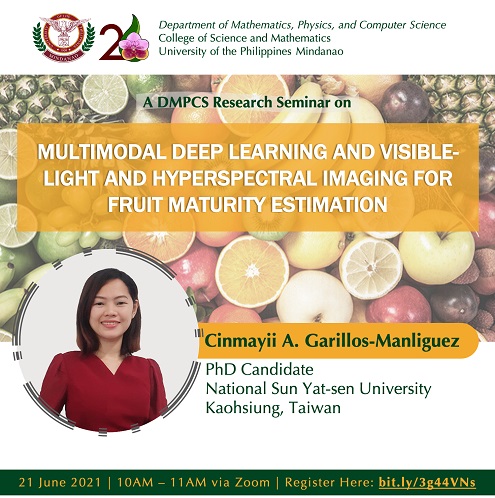News: PGC Mindanao starts genome sequencing
[Reprinted from Mindanews: https://www.mindanews.com/top-stories/2021/06/faster-detection-of-covid-19-variants-in-mindanao-expected-as-pgc-in-up-mindanao-starts-genome-sequencing/?fbclid=IwAR1EExizBt0NHT-xFae9dXXcs3tgLB2jImEUgZdToIiyzCaJd4BM5FSRWoA
Faster detection of COVID-19 variants in Mindanao expected as PGC in UP Mindanao starts genome sequencing
By ANTONIO L. COLINA IV -JUNE 20, 2021 10:10 PM
DAVAO CITY (MindaNews / 20 June) — Starting this week, samples of specimens to detect the presence of COVID-19 variants in Mindanao will no longer be sent to the Philippine Genome Center (PGC) at the University of the Philippines (UP) campus in Diliman, Quezon City but to the PGC Mindanao at the UP Mindanao campus here.
Dr. Lyre Murao, PGC Mindanao program director and professor of virology at UP Mindanao told a virtual presser on Friday that they expect a turnaround time of one to two weeks per batch of samples that will be processed for whole-genome sequencing (WGS).
Samples sent to the PGC in UP Diliman from Mindanao had a month-long turnaround.
PGC Mindanao targets to gather samples from all six regions of Mindanao and in fact has samples already for processing.
Earlier this month, Murao told MindaNews they will soon start pilot sequencing covering the entire Mindanao in collaboration with Accessible Genomics, Research Institute for Tropical Medicine, and the University of Glasgow.
Murao told the virtual presser on Friday that PGC Mindanao is collaborating with COVID-19 laboratories from different parts of Mindanao to get a clearer picture of the situation in the country’s second-largest island grouping.
Through the sequencing, new variants circulating in different communities will be determined to enable efficient monitoring of the mutated viruses of SARS-CoV-2, if they are more transmissible, cause more severe diseases, or lessen the efficacy of the vaccines.
“Why is that important? Because this will give us an idea of what kind of SARS- CoV-2 viruses do we have right now. Are these like the old original viruses or are they more transmissible? That means they can spread easily, or do they cause more severe diseases? Or, since vaccination is rolling out, will we soon have viruses that can escape these vaccines? Those are some of the things we want to monitor for these viruses,” she said.
She added that the sequencing can also provide analysis on how the virus spreads, more accurately and efficiently than the data provided in the contact-tracing, which suffers from some lapses.
“Contact-tracing allows us to indicate the people who have been infected due to one person, but there are gaps in contact tracing because the information that is given to contact tracers may not be accurate or some of them may not be true. But the beauty of sequencing is that we can also do a similar kind of analysis but sequences don’t lie. So, the information that we can get from sequences is accurate,” she added.
According to the World Health Organization, sequencing “enabled the world to rapidly identify SARS-CoV-2 and develop diagnostic tests and other tools for outbreak management” and continued genome sequencing “supports the monitoring of the disease’s spread and evolution of the virus.”
Health authorities in the country earlier confirmed the detection of the South African, UK and Indian variants in the National Capital Region and Cebu, including the latest variant called “P-3” that was first detected in the Philippines.
Davao City reported on February 13 its first case of the UK variant or B.1.1.7, after a specimen of a 10-year-old boy whose family had no travel history yielded positive genome sequencing results.
As of June 19, the Department of Health (DOH)-Davao reported 36,672 cases with 8,386 active, 26,994 recoveries, and 1,292 deaths.
Out of the total cases, Davao City logged 21,452 cases with 4,564 active, 16,059 recoveries and 829 deaths.
Davao de Oro tallied 2,745 cases, Davao del Norte with 6,899, Davao del Sur with 2,750, Davao Occidental with 480 and Davao Oriental with 2,346. (Antonio L. Colina IV / MindaNews)

 The Department of Mathematics, Physics, and Computer Science invites the interested public to the DMPCS Research Seminar on "Multimodal deep learning and visible-light and hyperspectral imaging for fruit maturity estimation" on June 21, 2021, 10AM via Zoom.
The Department of Mathematics, Physics, and Computer Science invites the interested public to the DMPCS Research Seminar on "Multimodal deep learning and visible-light and hyperspectral imaging for fruit maturity estimation" on June 21, 2021, 10AM via Zoom.